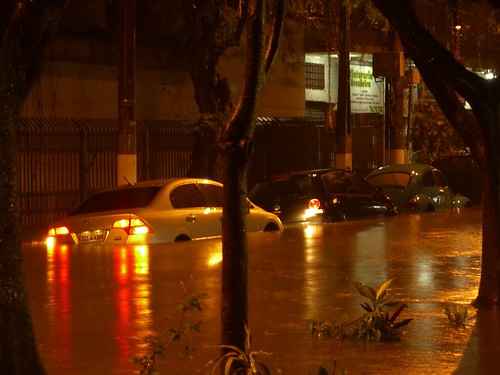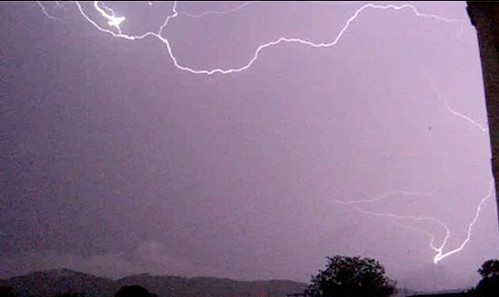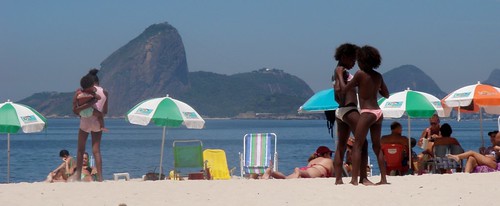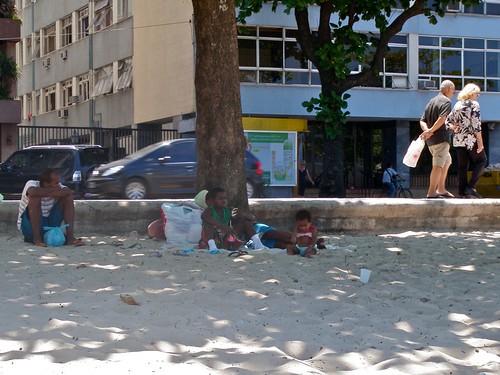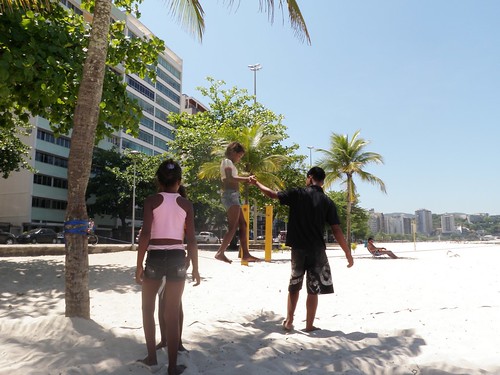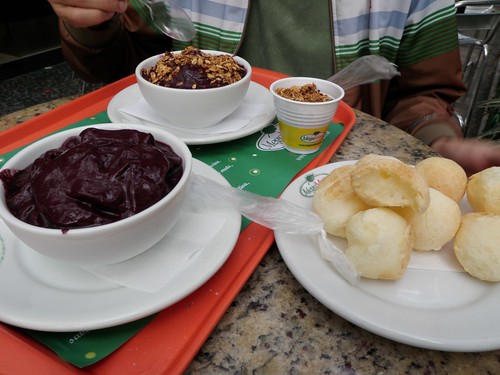I wanted to give my interpretation of the social class structure in Rio. Remember, this is an opinion coming from a blond haired, blue eyed, American girl. I just want to record my current interpretation so I can see how it changes over time. With that in mind, here is my general breakdown:
Homeless:
There are a few homeless families here. The street families beg for food all day - sometimes it is one person, usually it is a whole family. And the smell... oh the smell. It is terrible. One family lives in front of, what I call, the blue wall (a giant blue wall that separates a school from the street and sidewalk). I'm actually not sure if it is one large family or two smaller ones, but this group of maybe 15 - younger adults all the way down to infants - is almost always in front of this blue wall, and this is a highly trafficked area so there are always people walking by. They beg for food and whatever else they can get all day, then at night they go across the street, lay out a foam pad, pile on top of one another, and go to sleep. I'm not sure what the older ones do about the bathroom, and I'm not sure I want to know, but I do know that they have no problem leaving behind dirty diapers and other trash, which is later cleaned by the local municipality. So I'm sure you can imagine that if the local sidewalk sweepers don't come by for even one day, the whole area begins to smell, bad! This is the life of a street person.
Favela Society:
I have never walked through a favela. I have been on bus rides through them, but have never spent time in them, but I still wanted to share the way I am interpreting the societal breakdown here, based purely on my observation. Favelas are their own society, yet I think favelas are a mirror of the larger society - lower, middle, and upper class still exists. There are those people who are unemployed, or underemployed, and whose kids don't go to school, or go only periodically - but at least they are not living on the streets. This is the low class favelado (favela dweller).
Then there is the large and varied middle class. These people have jobs, and they likely make one to five times the minimum wage (adjusted annually, it is just over R$505 (US$270) per month for 2010). They might be street sweepers, waitresses, maids, construction workers, doormen, beach cleaners, parking assistants, (did I mention Rio's propensity for job creation!), etc. These people are also consumers. More and more have cars, cameras, and cell phones, and 97% of favela homes have a TV. But they still live in a favela, which means less access to infrastructure, such as sewage, trash disposal, and running water, and slimmer opportunities for a good education.
Upper class favelados. I know very little about this group, but I speculate that the people comprising the upper echelons of drug gangs reside here. I imagine that these people don't necessarily have to live in favelas, but choose to. Certainly these guys have cars and iphones. They control the favela - just like the very small percentage of wealthy Americans who run their tentacles through everything in US society.
Also, it is safe to bet that if someone lives in a favela, that person has dark to black skin. Although favelas sound like very dreary and poverty stricken communities, they are also self sustaining mini-economies that have their own shops, banks, and even fast food (hello McDonalds).
Middle Class Society:
Again the middle class here, like in the US has the lower, middle, and upper class. Middle class society is very similar to the US middle class, it is huge and varied. There are people trying to make ends meet, there are people living comfortably, there are those whole live a life of excess, some can afford it, others can't. People have jobs, kids, apartments, homes, cars, and TVs. Some have summer beach homes and BMWs. Others have a bicycle and a cell phone. I would say the lifestyle I am living right now would fall into the category of upper middle class (even though I think I always live like a queen, I mean, really, look at my life.. how good it is!). I go out to eat at least once a day, I live beach front, I have internet access, a maid occasionally comes to clean and cook.
High Class Society:
This group, as in the US, is a minority. Even contemplating the amounts of money people have here is pointless. I mean really, the wealth gap is HUGE now and these people who already have millions just want more while people sleep on the street. It is sick.
So far this is my interpretation of the social class structure in Rio. I'm sure it will be changing as time goes by, and it will be interesting, and maybe even helpful, to go back and read this later to see how my opinions change.




